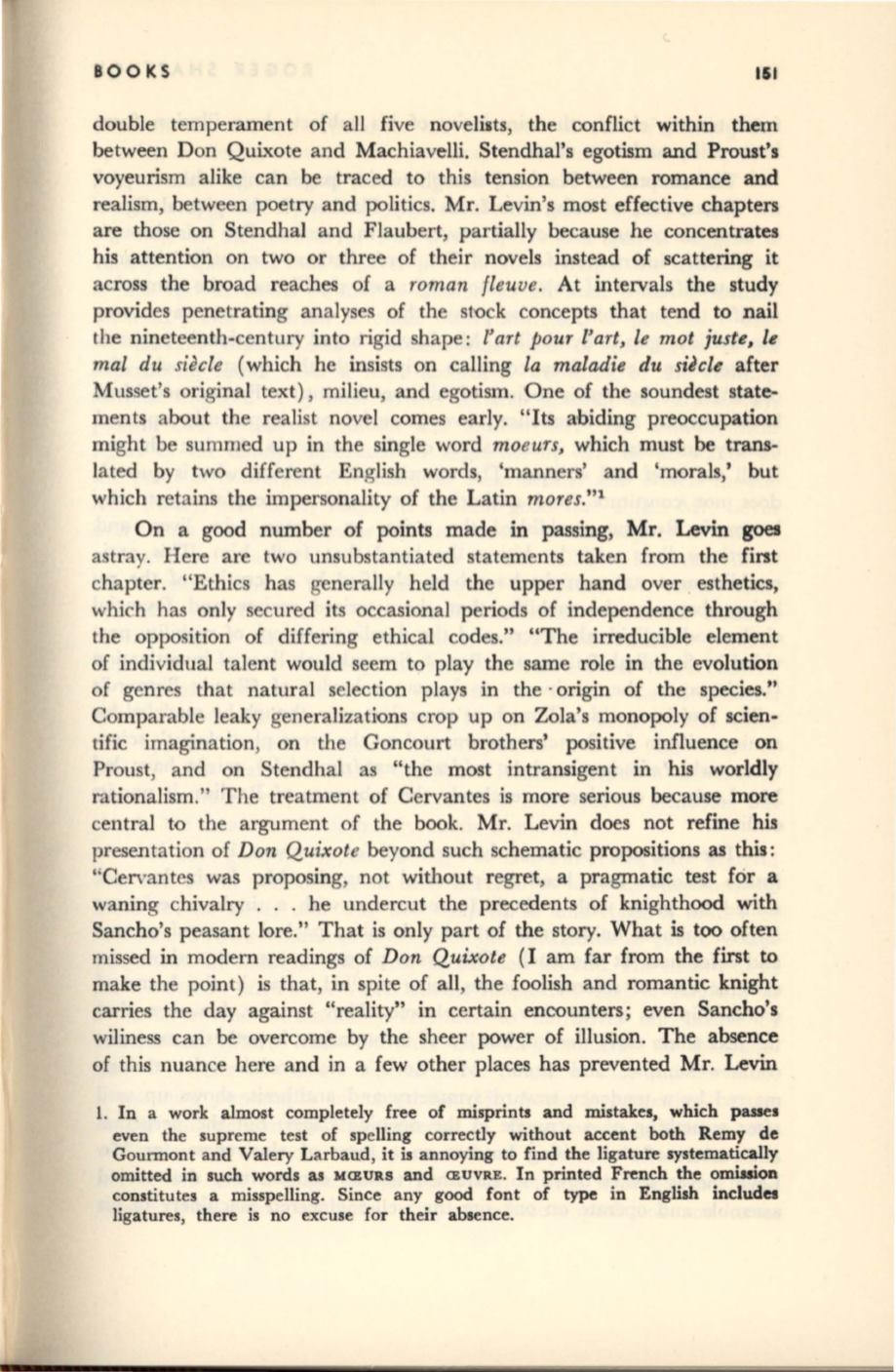
BOOKS
151
double temperament of all five novelists, the conflict within them
between Don Quixote and Machiavelli. Stendhal's egotism and Proust's
voyeurism alike can be traced to this tension between romance and
realism, between poetry and politics. Mr. Levin's most effective chapters
are those on Stendhal and Flaubert, partially because he concentrates
his attention on two or three of their novels instead of scattering it
across the broad reaches of a
roman fleuve.
At intervals the study
provides penetrating analyses of the stock concepts that tend to nail
the nineteenth-century into rigid shape:
l'art pour l'art, Ie mot juste, Ie
mal du siecie
(which he insists on calling
la maladie du
si~cle
after
Musset's original text), milieu, and egotism. One of the soundest state–
ments about the realist novel comes early. "Its abiding preoccupation
might be summed up in the single word
moeurs,
which must be trans–
lated by two different English words, 'manners' and 'morals,' but
which retains the impersonality of the Latin
mores."1
On a good number of points made in passing, Mr. Levin goes
astray. Here are two unsubstantiated statements taken from the first
chapter. "Ethics has generally held the upper hand over . esthetics,
which has only secured its occasional periods of independence through
the opposition of differing ethical codes." "The irreducible element
of individual talent would seem to play the same role in the evolution
of genres that natural selection plays in the ' origin of the species."
Comparable leaky generalizations crop up on Zola's monopoly of scien–
tific imagination, on the Goncourt brothers' positive influence on
Proust, and on Stendhal as "the most intransigent in his worldly
rationalism." The treatment of Cervantes is more serious because more
central to the argument of the book. Mr. Levin does not refine his
presentation of
Don Quixote
beyond such schematic propositions as this:
"Cervantes was proposing, not without regret, a pragmatic test for a
waning chivalry . . . he undercut the precedents of knighthood with
Sancho's peasant lore." That is only part of the story. What is too often
missed in modern readings of
Don Quixote
(I am far from the first to
make the point) is that, in spite of all, the foolish and romantic knight
carries the day against "reality" in certain encounters; even Sancho's
wiliness can be overcome by the sheer power of illusion. The absence
of this nuance here and in a few other places has prevented Mr. Levin
1.
In a work almost completely free of misprints and mistakes, which passel
even the supreme test of spelling correctly without accent both Remy de
GOUlnlont and Valery Larbaud, it is annoying to find the ligature systematically
omitted in such words as
M<EURS
and
<EUVRE.
In printed French the omiasioD
constitutes a misspelling. Since any good font of
type
in English includes
ligatures, there is no excuse for their absence.


